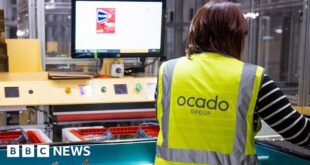Hyundai and Kia have pumped €100m into UK electric vehicle start-up Arrival in one of the largest investments in Britain’s car industry since the country voted to leave the EU in 2016.
The injection by the Korean manufacturers into Arrival will value the company at €3bn, making it one of Britain’s most valuable start-ups. It also offers a boost for the UK car industry at a time when investment has fallen owing to worries over the country’s trading relationship with Europe, its largest export market.
While Japanese carmakers Nissan and Toyota have invested significant sums to build new models in the UK since the Brexit vote, overall spending in the sector has dropped sharply as international investors delay or divert funding, according to the Society of Motor Manufacturers and Traders.
Arrival is preparing to build thousands of electric vans at plants in the UK and internationally and plans to develop a new range of vehicles alongside the Korean manufacturer following the investment.
“This will lead to significant collaboration, this is far more than just an investment,” said Arrival’s chief strategy officer Avinash Rugoobur.
The partnership is the latest example of established carmakers turning to start-ups to help them produce battery electric vehicles, as they seek to plug the gaps in their technological knowhow.
In the US, Ford has partnered with Rivian, the US electric pick-up truck company, to produce a new vehicle, along with a $500m investment. In Europe, Rimac, the Croatian supercar maker, sells its technology to a range of brands from Aston Martin to Seat’s Cupra nameplate.
Youngcho Chi, chief innovation officer at Hyundai, said the company was accelerating “investment and co-operation” with businesses that specialise in new technology, such as Arrival.
Hyundai and Kia, whose cross-shareholding sees them treated by many in the industry as one business, have lagged behind many of their European rivals in rolling out electric vehicles across their line-up.
The first generation of Arrival vans were existing conventional vehicles retrofitted with battery electric technology and used by companies including Royal Mail and BT. Its new generation of models have been designed from scratch and use a flexible “skateboard” chassis that Hyundai and Kia will also use as a base for a new range of battery vehicles.
Founded in 2015, Arrival has focused its development on inner city vans, which are predominantly diesel and facing potential upheaval as city authorities try to address air quality concerns. The group has a plant under construction in Bicester, Oxfordshire, and 400 employees in the UK, as well as another 400 across Germany, the Netherlands, Russia, Israel and the United States.
Arrival says its new electric van, with a range of up to 200 miles, will be comparable in price to conventional diesel vans, but with much lower running and fuelling costs. “Our objective was how to make electric vehicles at parity,” [to traditional engine-driven vans], chief executive Denis Sverdlov told the Financial Times.
It uses new manufacturing techniques which allow vehicles to be made in “microfactories” that avoid the tooling costs which force existing carmakers to operate vast plants turning out hundreds of thousands of vehicles a year.
In contrast, Arrival expects its sites, which will be kitted up to produce about 10,000 vehicles annually, to be profitable with production levels in the thousands. The company also designs almost all of its components itself, allowing it to cut costs by bypassing existing car suppliers.
Source link



